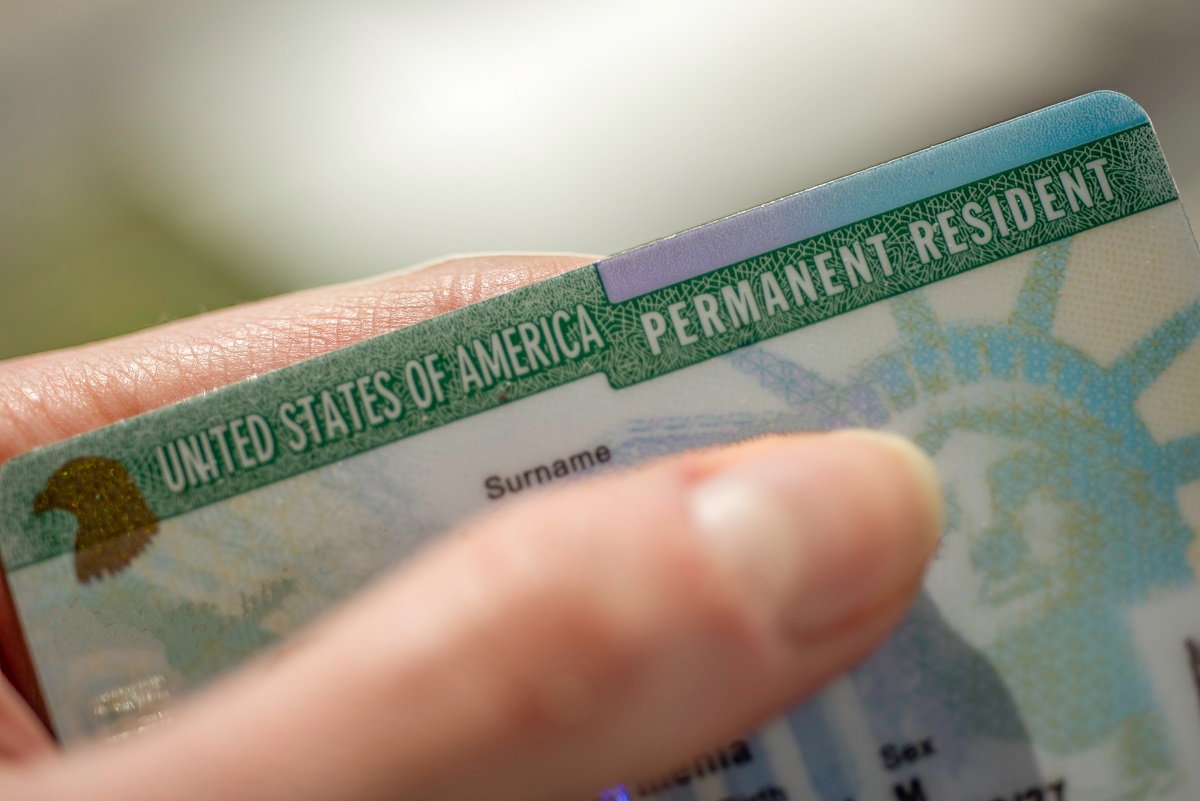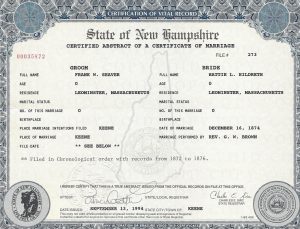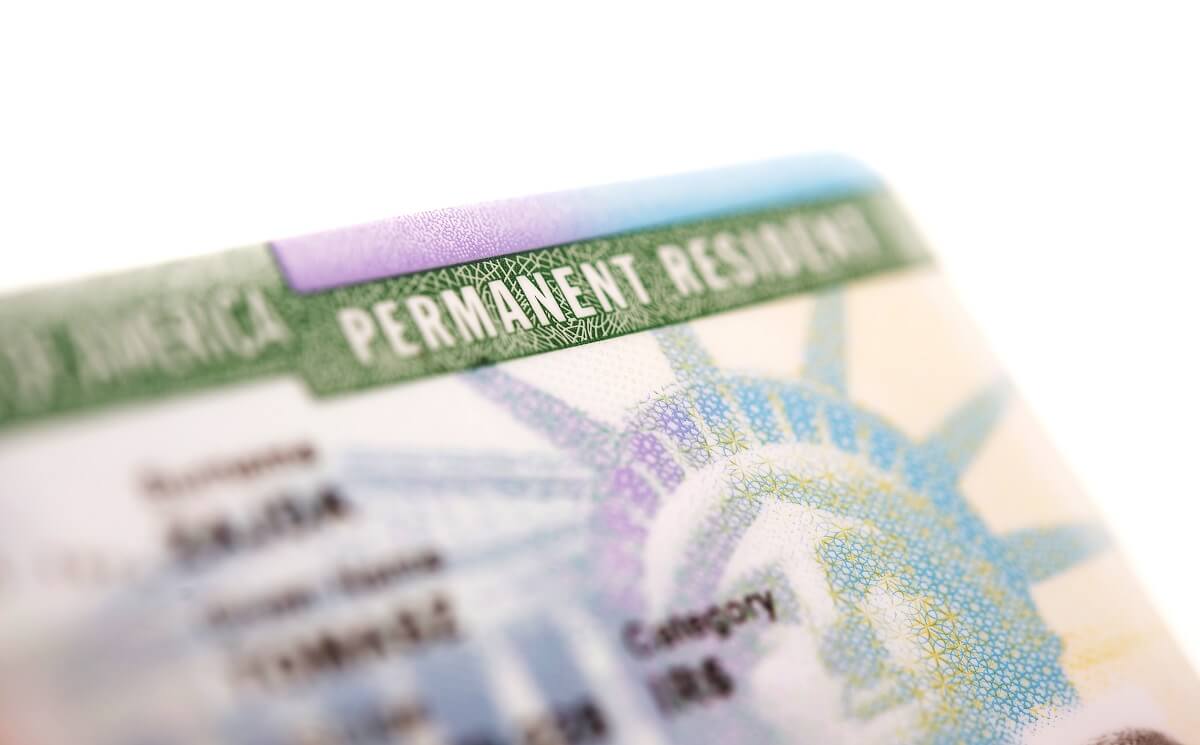
There are various reasons you may want to do a green card name change. Everyday people get married and divorced, often resulting in a legal name change. Others may just decide to adopt a more Western style name after immigrating to the United States. Whatever your reason, a green card name change is a relatively simple matter.
Start with a Legal Name Change
It’s important to understand that the legal name change must take place before you update the green card. In other words, you’ll need a registered copy of your marriage certificate, divorce decree, adoption decree, or other court-issued document showing your name was legally changed. Once you have this, you can get started on your green card name change.
In the United States, you can generally change your name for any reason. State laws ultimately regulate names changes so the rules do vary by state. But adopting a new name is not limited by marriage, divorce, etc. You can wake up tomorrow and decide to re-name yourself.
In most cases, you’ll need to file some paperwork at a local government office. There will likely be a small fee, and it may be necessary to publish a legal notice in a local newspaper to announce the name change.
If you do not already have a registered copy of your name change document, you’ll need to request one. A simple photocopy is not sufficient. Legal name change documents submitted to U.S. Citizenship and Immigration Services (USCIS) as evidence of a name change must have been registered with the proper civil authority.

File Form I-90 for the Green Card Name Change
With evidence of your legal name change in hand, you’re ready to file Form I-90, Application to Replace Permanent Resident Card. Use this application to renew or replace a green card for just about any reason, including a name change. You can download the form on USCIS.gov or go to CitizenPath.com to prepare Form I-90. CitizenPath offers an affordable service to help people like you prepare the application correctly. Immigration attorneys designed the service to make it easier to prepare and help eliminate the common errors that can cause delays and denials. CitizenPath even guarantees that USCIS will approve your application for a green card name change.
When asked if your name has “legally changed since the issuance of your Permanent Resident Card,” you’ll answer “Yes.” You’ll have the opportunity to enter your new name.
Then, select, “My name or other biographic information has been legally changed since issuance of my existing card” in response to the question about the reason for filing your application. USCIS will print your new legal name on the new green card.
Several other questions on Form I-90 can be challenging for some permanent residents. CitizenPath's service can help you navigate these questions.
Use Form I-751 to Change Your Name When Removing Conditions
If you obtained permanent residence through marriage, you also have an opportunity to change your green card name when filing Form I-751, Petition to Remove Conditions on Residence.
USCIS will issue permanent residents, who obtained status through marriage, a two-year conditional green card when the marriage is less than two years old at the time that status is granted. The conditional resident must file Form I-751 in the 90-day period before the card expires. If USCIS issued your card in a maiden name but you prefer to use your married name, this is a new opportunity for a green card name change.
File Form I-751 using your legal married name. As with other forms, be sure to list any other names that you have used. When filing Form I-751 with USCIS, include your legal name change document as upporting evidence to prove you are the same person.
Green Card Name Correction
Sometimes a name change is necessary because USCIS made the mistake. It happens, unfortunately too often. Green cards arrive in the mail with a misspelled name through no fault of your own. USCIS (an agency within the Department of Homeland Security) errored.
In these cases, you’ll need to select “My existing card has incorrect data because of Department of Homeland Security (DHS) error” on Form I-90. Unfortunately, this creates a problem. You’ll also have to submit the actual green card when filing Form I-90. The good news is that no application fee and no biometrics services fee are required. You’ll have to include the following items with your application:
- Original Permanent Resident Card with the incorrect information. A copy of the card is not acceptable.
- Proof of your correct name or biographical data that you are fixing. For example, provide a copy of the original court order reflecting your name or a registered copy of your original marriage certificate, divorce decree, birth certificate, adoption decree, passport, or applicable court documents.
This will leave you without a green card until a new one can be sent, usually several months. You may obtain an I-551 stamp in your passport as temporary proof of your permanent resident status. Once you receive your I-797C, Notice of Action (receipt notice), schedule an appointment at your local USCIS office to get your stamp.
Change Your Name While Becoming a U.S. Citizen
Did you know that you can change your name during the naturalization process? It’s not necessary to get a new green card first. There’s actually two ways – before naturalization or during naturalization.
Before Naturalization
If you’ve recently changed your name, you can submit your legal name change document (marriage certificate, divorce decree, etc.) with your Form N-400, Application for Naturalization. USCIS will use your new name on your Certificate of Naturalization.
During Naturalization
When permanent residents apply for naturalization with Form N-400, they have the option of requesting a name change upon a grant of U.S. citizenship. This provides an opportunity to adopt more Americanized names. A petition for a name change is prepared and forwarded to a federal court during the naturalization process. There is no extra cost. The name change becomes final once a federal court naturalizes the applicant. Again, USCIS will use your new name on your Certificate of Naturalization.
After Naturalization
Of course, you can even change your name after naturalization. You may need to update your Certificate of Naturalization. To do so, file Form N-565, Application to Replace Citizenship Document. Again, you'll need evidence of your legal name change. USCIS will provide you with a new certificate that includes your new legal name.
About CitizenPath
CitizenPath provides simple, affordable, step-by-step guidance through USCIS immigration applications. Individuals, attorneys and non-profits use the service on desktop or mobile device to prepare immigration forms accurately, avoiding costly delays. CitizenPath allows users to try the service for free and provides a 100% money-back guarantee that USCIS will approve the application or petition. We provide support for the Naturalization Application Package (Form N-400), Green Card Renewal/Replacement Package (Form I-90), and several other immigration services.
Want more immigration tips and how-to information for your family?
Sign up for CitizenPath’s FREE immigration newsletter and
SAVE 10%
on our immigration services





